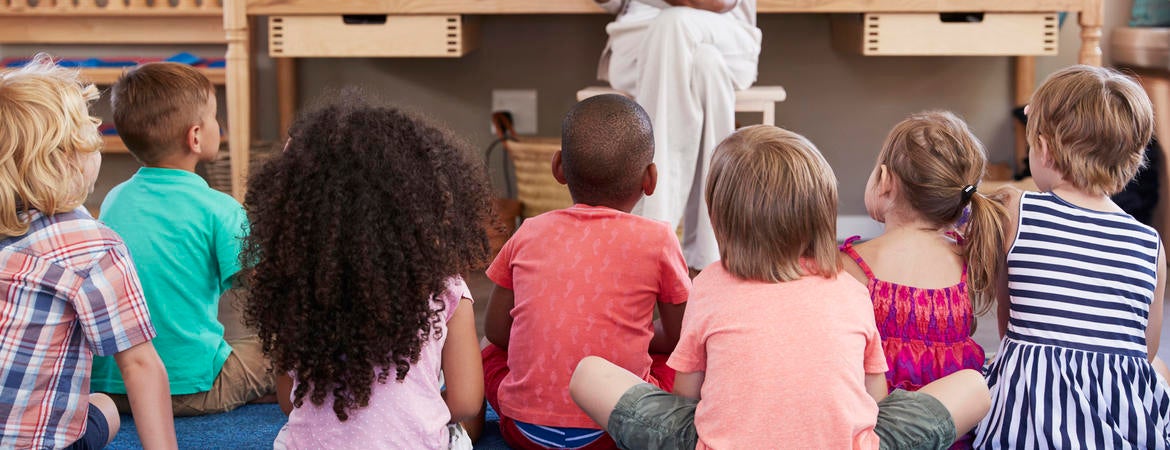
The prevalence of autism spectrum disorder, or ASD, has mushroomed in recent years, jumping 15 percent between 2016 and 2018 alone. An estimated one in 59 children has received an autism diagnosis, making it likely that all regular education teachers will encounter a student with ASD at some point in their careers, said autism education expert Jan Blacher.
Blacher, a distinguished professor in the Graduate School of Education at the University of California, Riverside, is on a mission to improve how regular education teachers engage with kids with ASD in their classrooms. Along with Abbey Eisenhower of the University of Massachusetts-Boston, she’s the co-leader of a bi-coastal team of researchers working to develop a school-based intervention geared toward enhancing relationships between young children with ASD and their teachers. Their work is supported by a $1.4 million grant from the U.S. Department of Education’s Institute of Education Sciences, or IES.
“The student-teacher relationship in the early school grades actually affects children’s long-term outcomes,” Blacher said, emphasizing the importance of student-teacher relationships to kids’ later social and academic success in middle school.
“The issue is that regular education teachers may have one or two children with ASD in their classrooms, essentially thrust upon them,” she added. “While most teachers have few challenges in developing positive relationships with their typically developing students, it’s a whole different story with students who have autism. We especially see teachers in the early grades — mainly grades K-2 — experiencing great difficulty in developing warm, positive relationships with children with autism.”
Blacher's receipt of the grant comes on the heels of the conclusion of another four-year, IES-supported study she spearheaded with Eisenhower between 2013 and 2017, the initial “Smooth Sailing” project. During that study, Blacher and researchers in California and Massachusetts tracked 200 children with ASD as they moved from pre-kindergarten into elementary school, focusing on student-teacher relationships, the children’s emotional behaviors, parental support, and skills such as early reading.
The study’s results appeared in a series of articles published in journals including School Psychology Quarterly, Exceptional Children, the Journal of Autism and Developmental Disorders, Education and Training in Autism and Developmental Disabilities, and Remedial and Special Education.
Blacher described “Smooth Sailing” as an opportunity to better understand what helps children with ASD integrate into regular education classrooms. Her team homed in on reading skills, finding that children considered “high functioning” on the autism spectrum — essentially meaning those without comorbid intellectual disabilities — often entered school at the same or a higher level than their typically developing peers when it came to pre-literacy activity.
“And yet teachers didn’t recognize that,” Blacher said. “They were so focused on the behavioral difficulties of their students with autism that they often overlooked the strengths.” In fact, many of the children with ASD that Blacher studied began having comprehension difficulties as early as second grade, whereas such problems usually aren’t targeted until fourth or fifth grade. “Our findings suggest that teachers should have — and maintain — high expectations in the area of reading for these young children with ASD,” she added.
The “Smooth Sailing” team also explored parents’ satisfaction with their children’s Individualized Education Programs, or IEPs. These legally mandated plans are created collaboratively and serve as roadmaps for public school students with disabilities who require special education as well as services such as individual aids or support personnel. Blacher said parents of kids with ASD are among the most likely to report dissatisfaction with the IEP process, often leading to contentious legal disputes.
“That dissatisfaction tends to be connected to teachers’ years of experience with kids with autism,” she said. “A major source of the problem is that, historically, the field of education never considered children with autism to be part of the mainstream, so we haven’t properly prepared teachers to feel comfortable having such children in their classrooms.”
Going forward, Blacher and her bi-coastal team will partner with about 60 elementary school teachers to develop and test a comprehensive intervention with three components:
• Interactive training modules that teachers can access digitally.
• A program called Time2Connect, which encourages teachers to dedicate five minutes of one-on-one time per day to each child with ASD in their classrooms. Blacher expects that regular individual interaction with their teachers will increase academic engagement and overall interest in school, decrease off-task behaviors, and strengthen social skills in kids with autism.
• Teacher-as-Interviewer, a strategy to motivate teachers to start off the teacher-parent relationship positively by first connecting with the parents of children with ASD during structured interviews. “It’s a chance for the teacher to find out more about the child,” Blacher said. “It’s also a way of setting up a dialogue that allows parents to provide input in response to teachers showing interest, rather than parents forcing that interest on teachers.”
The goal is to provide educators across the country with the resources that will lead to stronger foundations — and better long-term outcomes — for students with ASD.
“We want teachers to think of, and interact with, children with autism as kids in their classroom, regardless of the aids or other support personnel who might be there, too,” Blacher said. “To date, many teachers in regular education classes in the early grades haven’t really had the confidence or desire for hands-on opportunities with these children.”
Blacher, who directs UCR’s SEARCH Family Autism Resource Center, is the grant’s co-principal investigator along with Eisenhower, an associate professor of psychology.




